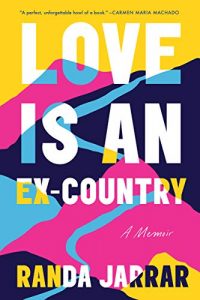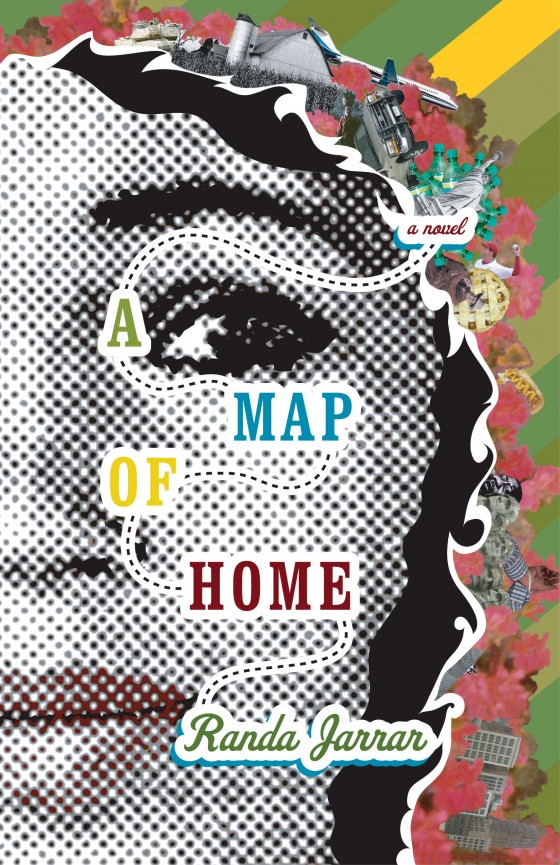Amazon Affiliate Link | Bookshop.org Affiliate Link
Love is an Ex-Country is part memoir, part essay collection. It touches on a variety of topics, from racism to queerness to fatphobia to Arab identity, while always keeping an engaging, almost playful tone. There are many reasons why it worked for me so well. Before I get into the review, I want to say that as a white, Christian, American that has no interest in kink I am definitely not the reviewer to understand the intricacies of this memoir. I encourage you to seek out reviewers from different backgrounds than me to get a fuller picture of this book.
The memoir is in the form of various chapters examining the author’s travels. It takes place in the summer of 2016, when Randa Jarrar decided to take a solo cross-country road trip through the United States. However, most of the book has nothing to do with the road trip, and is a series of her reflecting on past memories. This book examines the reality of living as a fat woman of color in the United States. Jarrar has experienced a lot, including being doxxed by a mob of alt-right trolls after calling out white feminism in regards to Barbara Bush’s death. I truly respect how open and honest they were about this traumatic experience, even offering examples of the vile, racist hate mail she received. This authenticity carries throughout the narrative.
The first thing that stood out to me is that Jarrar never fails to examine her positionality in the situations that they describe. They are quick to own where they lack and have privilege, and never fail to call out bigotry in the situations they describes. One example that particularly stood out to me was when they were faced with the racism and xenophobia of a white woman at a rest stop. The woman assumed Jarrar was white and spouted off stereotypes about Black people and Syrian refugees. Jarrar did not entertain the woman’s bigotry and swiftly called her out. This book was a great example of how to think about intersectionality.
Another thing I loved about this book was Randa Jarrar’s matter-of-fact writing style. It is so refreshing to read a voice that is so unapologetic in the face of so many people that want her to hate herself, as well as tumultuous world events. Reading this book inspired me to start having more of that self-acceptance in my own life. While the things she did are not always likable, she does make the reader understand her thinking. This attitude makes the writing engaging throughout. At the same time, the unflinching look at Jarrar’s life events makes the parts of the book where they describe being abused and mistreated harrowing. I do not think this is a negative, I think this actually is a strength of the memoir. However, it could be a lot for some readers to handle.
Readers should know before they pick up this book that this memoir describes instances of racism, prejudice against Arabs, misogyny, violence, fatphobia, abuse from a parent and significant other (including child sexual abuse and domestic violence), forced dieting, and eating disorder behavior. It also includes graphic descriptions of sex and BDSM and instances of interactions with the police.
Overall, this book is a great examination of one woman’s experience of the world, made up of small, seemingly disjointed narratives that piece together beautifully. If you can handle it, you might enjoy it.


